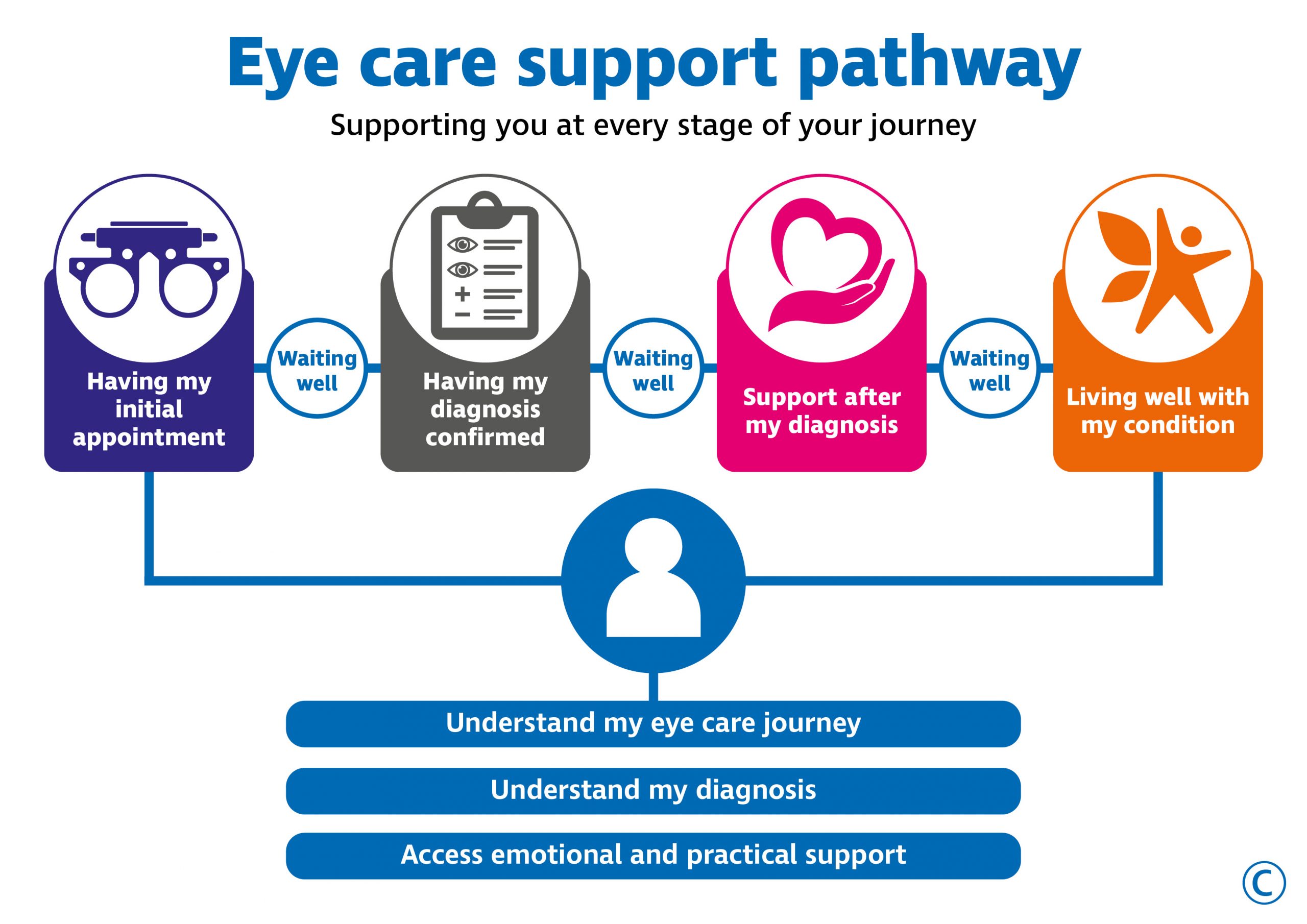ABDO welcomes new Eye Care Support Pathway
 Senior leaders from the NHS, social care and the third sector gathered in London on 16 November to explore new ways to ensure people with eyecare needs and sight loss receive vital information, advice, practical and emotional support.
Senior leaders from the NHS, social care and the third sector gathered in London on 16 November to explore new ways to ensure people with eyecare needs and sight loss receive vital information, advice, practical and emotional support.
The Royal National Institute of Blind People (RNIB) Collaborate for Good event in London brought together leading organisations from across the eyecare and sight loss sector to unveil a UK wide Eye Care Support Pathway. The pathway is a new framework to ensure patients have timely access to information, advice and support throughout their eyecare journey.
The over-arching ambition for the Eye Care Support Pathway is that from the moment someone realises that “something isn’t quite right” with their sight, through to diagnosis and being able to live confidently – and independently – with their condition, they have access to the information, and support they need, explained the RNIB. The organisation highlighted that there were more than eight million out-patient eyecare appointments in the UK in 2021/22, the highest footfall for any speciality, and that its own research showed people often found it difficult to access eye health and sight loss information, services and support.
More than 20 organisations have already endorsed the Eye Care Support Pathway – including ABDO – which has been two years in the making. It has been informed by detailed research, the insight of more than 500 people with lived experience, and more than 30 bodies who represent professionals and patients across the sector.
 RNIB chief executive officer, Matt Stringer, said: “We know that the experience of people with eyecare needs and sight loss varies greatly across the UK. It’s not acceptable that anyone, regardless of their condition or where they live, does not get the right help and support at the right time.
RNIB chief executive officer, Matt Stringer, said: “We know that the experience of people with eyecare needs and sight loss varies greatly across the UK. It’s not acceptable that anyone, regardless of their condition or where they live, does not get the right help and support at the right time.
“It’s encouraging to see so many partners are joining us for the event to work towards establishing, implementing and delivering the Eye Care Support Pathway. Today is an important milestone, but only the beginning of the work we need to achieve together, bringing everyone together and moving forward to better support people across their eye care journey.”
Louisa Wickham, national clinical director for eyecare for NHS England, said: “Success in transforming the way eyecare services are provided to meet the increasing demand on the NHS will require the whole sector to transform its approach to improving patient care. The Eye Care Support Pathway puts the person at the centre of their eyecare and sight loss journey. When the Eye Care Support Pathway is implemented, we must seize the opportunity to truly transform services, empower patients and improve outcomes. I’m grateful to our VI sector charity partners for collaborating in developing and publishing the Eye Care Support Pathway and in bringing people together to embed the framework into services and ensure that every person gets the right support at every stage.”
Max Halford, ABDO clinical lead, said: “ABDO welcomes and endorse this important eyecare support pathway. Dispensing opticians are often the first eyecare professional a patient encounters in practice and they recognise the importance of effective and timely communication with patients who are often worried and confused about where to seek support. This work will help us on our journey to transform eyecare services for patients from the very moment they walk into our practices.”
The next steps will see the VI Charity Sector Partnership working with NHS and social care bodies and those with lived experience to implement the pathway.
Read The Eye Care Support Pathway report here.